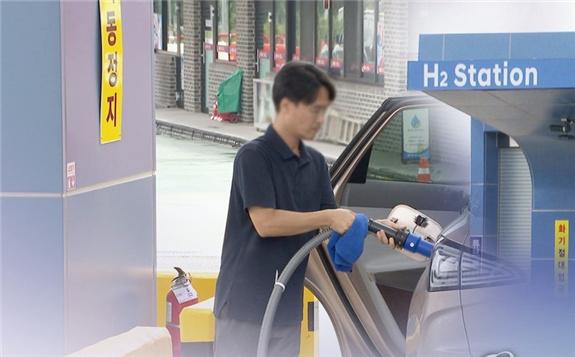South Korea said Tuesday it plans to build more hydrogen production facilities across the country that will be able to power nearly 50,000 cars annually, in line with its latest green energy vision that centers on slowly breaking away from fossil fuels.

The five new facilities, to be built in Busan, Daejeon and three other cities, will utilize liquefied natural gas (LNG) to produce 7,400 tons of hydrogen annually, according to the Ministry of Trade, Industry and Energy.
The amount of hydrogen will be sufficient to power 760 buses or 49,000 passenger vehicles.
The project came in line with the country's efforts to promote hydrogen fuel cell automobiles.
South Korea has been seeking to build a society that harnesses hydrogen as the main source of energy for vehicles and other daily uses. The policy is considered one of the key projects pushed by the Moon Jae-in administration.
Hydrogen is an environment-friendly alternative to fossil fuels as automobiles running on the resource only create water in the process of generating power. It can be produced as a by-product of industrial facilities, including petrochemical plants as well.
South Korea, which plans to increase the accumulated number of hydrogen passenger cars here to 15,158 units by the end of this year, eventually aims to have 2.7 million of such automobiles running by 2040.
The country, which had just nine charging stations for hydrogen-powered cars in 2016, had a total of 34 such stations as of 2019. It plans to add a bunch more to have 310 units by 2022 and a whopping 1,200 in 2040.